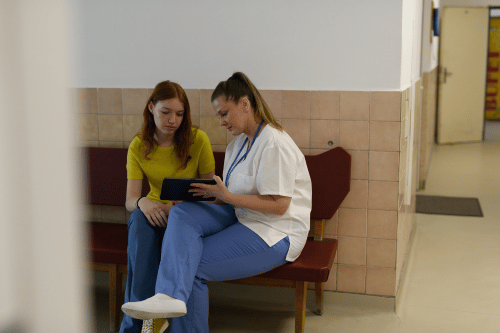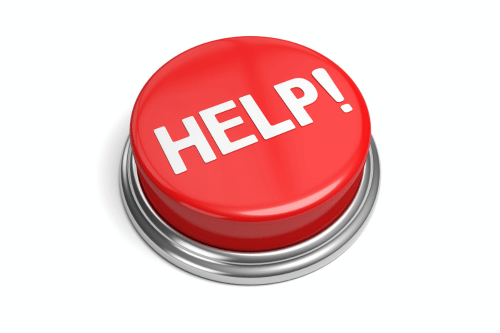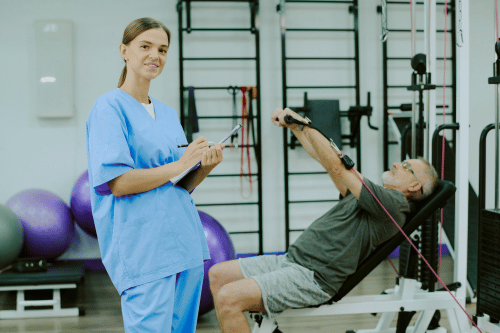

When people ask “What is aftercare?” they often think about what happens after therapy, medical care, or even personal relationships. In every setting, aftercare is the practice of providing continued support once the main event is complete. At Sullivan Recovery in Mission Viejo, we emphasize aftercare because it strengthens recovery, supports mental health, and lowers the risk of relapse.
Aftercare refers to the steps taken once a primary treatment, program, or experience ends. In psychology and healthcare, it means ongoing therapy or support designed to maintain progress. In relationships, it can include practices of reassurance, consent, and communication.
When clients ask us what is aftercare, we explain that it is both a mindset and a set of actions. It protects mental health, reduces anxiety, and gives people the tools to stay balanced. Whether in addiction recovery or personal connections, aftercare focuses on long-term stability.
Therapy is central to strong aftercare because it helps patients maintain progress beyond the initial phase of recovery. A therapist can guide patients in exploring emotions such as sadness, fear, or anxiety, which often return during times of stress. Therapy also addresses hormone fluctuations and their impact on mental health, teaching patients practical coping practices that restore balance.
In outpatient treatment, therapy serves as a safeguard by holding patients accountable and offering a safe environment to process triggers. At Sullivan Recovery, aftercare therapy blends traditional psychology with peer-driven community support. This combination of therapy, relapse prevention, and connection ensures patients develop resilience and maintain long-term health.

Psychology research shows that recovery is not a single event but an ongoing process requiring structure and reinforcement. Aftercare supports this by integrating therapy with healthy practices like mindfulness, journaling, and exercise, which protect both physical health and mental health. These psychology-driven strategies reduce anxiety and improve overall well-being.
Psychology also emphasizes the importance of addressing recurring emotions such as sadness and fear. Aftercare ensures patients have consistent access to a therapist, peer support, or community resources when challenges arise. With this kind of structured support, people are more likely to thrive, maintain stability, and avoid relapse.
At Sullivan Recovery, aftercare is considered an essential part of the recovery process rather than an add-on. Our outpatient programs begin with personalized planning that includes therapy sessions, health-focused check-ins, and ongoing communication with a therapist. This approach addresses both mental health and physical well-being while helping patients manage anxiety or sadness that may surface post-treatment.
Community support plays a central role in aftercare by creating safe spaces where patients discuss daily challenges and practice relapse prevention strategies. These groups often incorporate psychology-based practices such as guided reflection and coping exercises. The result is a sense of belonging that strengthens resilience, even when patients face uncertainty or setbacks.

Aftercare is not limited to clinical therapy or medical health programs; it also plays a vital role in relationships, intimacy, and personal communication. Clear consent, respect for boundaries, and ongoing dialogue are central practices that foster safety and trust between individuals. These principles mirror the values we reinforce at Sullivan Recovery, where patient well-being and respect remain priorities.
In contexts where kink or alternative practices are involved, aftercare becomes even more specialized. Partners use aftercare to check in on emotions, discuss psychological impacts, and ensure both mental health and physical health are respected after an intense experience. Consent is always at the core, reflecting the importance of communication, reassurance, and community trust.
Sex education stresses the value of consent, foreplay, and emotional safety in building healthy relationships. Aftercare extends these lessons by teaching individuals that connection and responsibility continue beyond intimacy. These practices strengthen emotional bonds, reduce anxiety, and highlight the importance of respect for mental health.
By integrating aftercare into sex education, individuals learn that practices like debriefing, reassurance, and open communication are just as important as physical safety. These lessons align with the psychology of healthy relationships and emphasize the value of community support. At Sullivan Recovery, we encourage these principles because they reflect our mission to promote both physical and emotional health in all areas of life.
Biology also plays a role in aftercare. Research shows that hormones shift during times of stress, intimacy, or withdrawal from substances. Hormone changes can trigger sadness, anxiety, or mood swings.
Aftercare addresses these health changes by combining therapy, support groups, and healthy lifestyle practices. For example, exercise and nutrition can balance hormone levels and reduce anxiety. Patients who follow aftercare plans experience better health outcomes and stronger recovery.

Foreplay is often discussed in terms of physical intimacy, but its connection to aftercare is important. Both are about preparation and follow-through. Just as foreplay builds trust and consent before intimacy, aftercare ensures emotional safety afterward.
In relationships where kink or other practices are present, aftercare provides closure and reassurance. It shows that consent extends beyond the moment. This strengthens mental health and fosters deeper community bonds built on respect.
Community is a cornerstone of recovery and aftercare. Patients who remain connected to a community of peers, family, and therapists have higher success rates in sobriety. Shared experiences reduce isolation and provide guidance during hard times.
At Sullivan Recovery, community-based aftercare includes group therapy, family therapy, and alumni events. These practices give patients a network that supports mental health, addresses anxiety, and builds lasting stability.
Mental health challenges like anxiety and sadness often persist even after treatment ends. Aftercare provides therapy and practices to manage these emotions effectively. Patients meet with a therapist who helps them process feelings and adjust to daily life without substances.
By focusing on mental health, aftercare ensures that recovery is not just about physical healing. It is about building resilience, managing stress, and preventing relapse. This holistic approach is what makes Sullivan Recovery a trusted outpatient provider in Orange County.

Research consistently proves that aftercare improves long-term outcomes. Patients who follow structured aftercare are less likely to relapse, more likely to maintain mental health, and better able to handle anxiety or sadness.
Studies also highlight the role of community and therapy in aftercare. By staying connected to a therapist and support groups, patients improve health outcomes. This research confirms the importance of aftercare in both psychology and addiction recovery.
Strong aftercare involves consistent practices such as therapy, meditation, and support group participation. Patients should also include health-focused habits like exercise, balanced nutrition, and sleep. These practices keep the body and mind aligned.
In relationships, aftercare practices focus on consent, communication, and emotional safety. Whether in kink or traditional intimacy, aftercare ensures partners leave experiences feeling respected and supported. Across all contexts, the goal of aftercare is to strengthen trust and stability.
At Sullivan Recovery, aftercare is a commitment to every patient’s long-term health and stability. We recognize that recovery extends far beyond detox and therapy sessions, which is why we integrate psychology, therapy, and research-backed practices into every personalized aftercare plan. These plans include mental health check-ins, therapist guidance, and access to supportive community groups.
Patients who stay active in aftercare often notice that anxiety becomes easier to manage, sadness feels less overwhelming, and hormone shifts caused by stress or cravings are stabilized through healthy routines. Community involvement is another key element, giving patients connections that reduce isolation and build resilience. By following these structured practices, recovery becomes not only sustainable but also empowering for each individual.
So, what is aftercare? It is the ongoing support, therapy, and communication that follow treatment, intimacy, or any major life event. Aftercare combines psychology, health practices, and therapist guidance to strengthen mental health, reduce anxiety, and manage emotions such as sadness.
It also emphasizes the role of consent, community, and respect in personal relationships, whether through traditional intimacy, foreplay, or kink-related experiences. These practices show that aftercare extends beyond medical recovery into everyday life, where mental and emotional health require ongoing attention. At Sullivan Recovery, aftercare remains the foundation of healing, helping patients build meaningful lives rooted in stability, respect, and resilience.
At Sullivan Recovery, as an in-network provider we work with most insurance plans, such as:
And More
If you or a loved one are struggling with mental health challenges or substance abuse, reach out to Sullivan Recovery today. Our team of compassionate professionals is here to support your journey towards lasting well-being. Give us a call at 949-836-7180.
No, aftercare applies to many areas of life. It can support addiction recovery, mental health, medical treatment, or even relationships and intimacy. The core idea is continued support after a major event.
The length of aftercare depends on individual needs. Some people benefit from structured aftercare for months, while others continue therapy, community support, and health practices for years.
Yes, aftercare is useful beyond recovery programs. Practices like therapy, mindfulness, and community support can reduce stress, ease anxiety, and improve mental health in daily life.
Community is central to effective aftercare. Being connected to peers, therapists, or support groups creates accountability and reduces feelings of sadness or isolation.